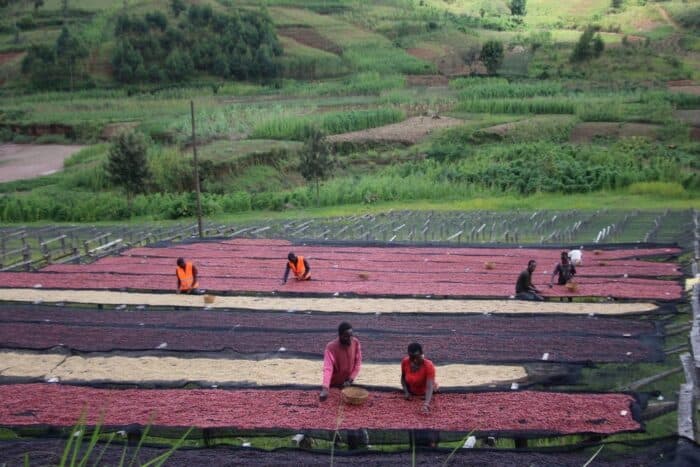China’s coffee market is expanding rapidly, with Yunnan Province emerging as the heart of the nation’s coffee production. Once primarily an exporter of raw coffee beans, Yunnan has transformed into a center for premium specialty coffee. This shift has been driven by a combination of improved farming techniques, government support, and a focus on quality, positioning Yunnan as a key player in the international coffee industry.
Yunnan’s high-altitude landscapes and fertile soil make it an ideal location for growing Arabica coffee, a crop introduced to the region in the late 19th century. The province, part of the “Coffee Belt”, benefits from a climate that enhances bean quality, allowing it to account for more than 98% of China’s total coffee production.
Recent data indicates that coffee harvests in Yunnan reached 146,000 tons in 2023, yet for many years, most of its coffee was exported as low-cost raw material. Now, a growing number of producers are shifting toward value-added processing and specialty coffee production, enhancing the province’s global reputation.
Historically, unprocessed coffee cherries from Yunnan were sold for as little as 3–4 yuan per kilogram, with peak prices rarely exceeding 30 yuan. However, with advancements in cultivation, processing, and branding, coffee prices have surged.
One local producer explains: “This year, we’re selling coffee cherries at 400 yuan per kilogram. This particular variety, ‘Geisha,’ has gained international recognition for its exceptional quality.”
This price increase reflects a broader industry shift toward higher-value, premium coffee, a transformation supported by new processing techniques, innovative farming practices, and direct market access for local growers.
Producers in Yunnan are experimenting with diverse processing methods to enhance flavor profiles. A leading example is sun-drying techniques, where freshly harvested coffee cherries are washed and dried naturally for weeks, resulting in complex and unique flavor notes.
Beyond production, coffee entrepreneurs in Yunnan are also fostering coffee tourism. Visitors can now explore coffee farms, witness processing techniques, and taste locally grown coffee. This approach not only boosts sales but also enhances global recognition of Yunnan coffee.
“We welcome tourists from across the world, and they’re often surprised by the quality of our coffee,” shares a café owner in Baoshan, where visitors can sample specialty brews and purchase locally roasted beans.
To further develop Yunnan’s coffee sector, local authorities have launched an initiative aimed at expanding production, supporting farmers, and promoting coffee-related businesses. A regional development project seeks to establish 100 leading coffee enterprises, connect 1,000 coffee shops, and engage 10,000 coffee farmers, ensuring a strong and sustainable supply chain.
A government official from Baoshan explains: “By strengthening every link in the coffee supply chain, we can create a resilient and competitive industry.”
Companies in Yunnan are moving beyond traditional coffee exports and investing in value-added products such as roasted beans, drip coffee, and instant coffee solutions.
One company, initially established in 2000 as a raw bean processor, has since evolved into a full-scale coffee production hub, offering a range of consumer-ready coffee products. In 2023, its total revenue reached 85 million yuan, reflecting the increasing demand for Chinese specialty coffee.
Beyond production, the company offers barista training programs, coffee brewing workshops, and educational tours where visitors can learn about the history of coffee in Yunnan and traditional processing methods.
“Our museum showcases how coffee was historically grown, processed, and enjoyed in this region,” shares a company representative.
Despite significant growth, Yunnan’s coffee industry faces ongoing challenges, including soil preservation, sustainable farming, and technological advancements. Experts emphasize the need for environmentally friendly agricultural practices to maintain the long-term viability of coffee production.
A researcher from the Yunnan Academy of Agricultural Sciences notes: “If we can integrate 30–40% of sustainable agricultural practices, we will be able to expand coffee-growing areas while preserving soil quality.”
With its strategic shift toward high-quality coffee production, enhanced branding, and sustainable farming, Yunnan is solidifying its place as a global coffee destination. Industry leaders believe this is just the beginning of an exciting new chapter for Chinese coffee.

